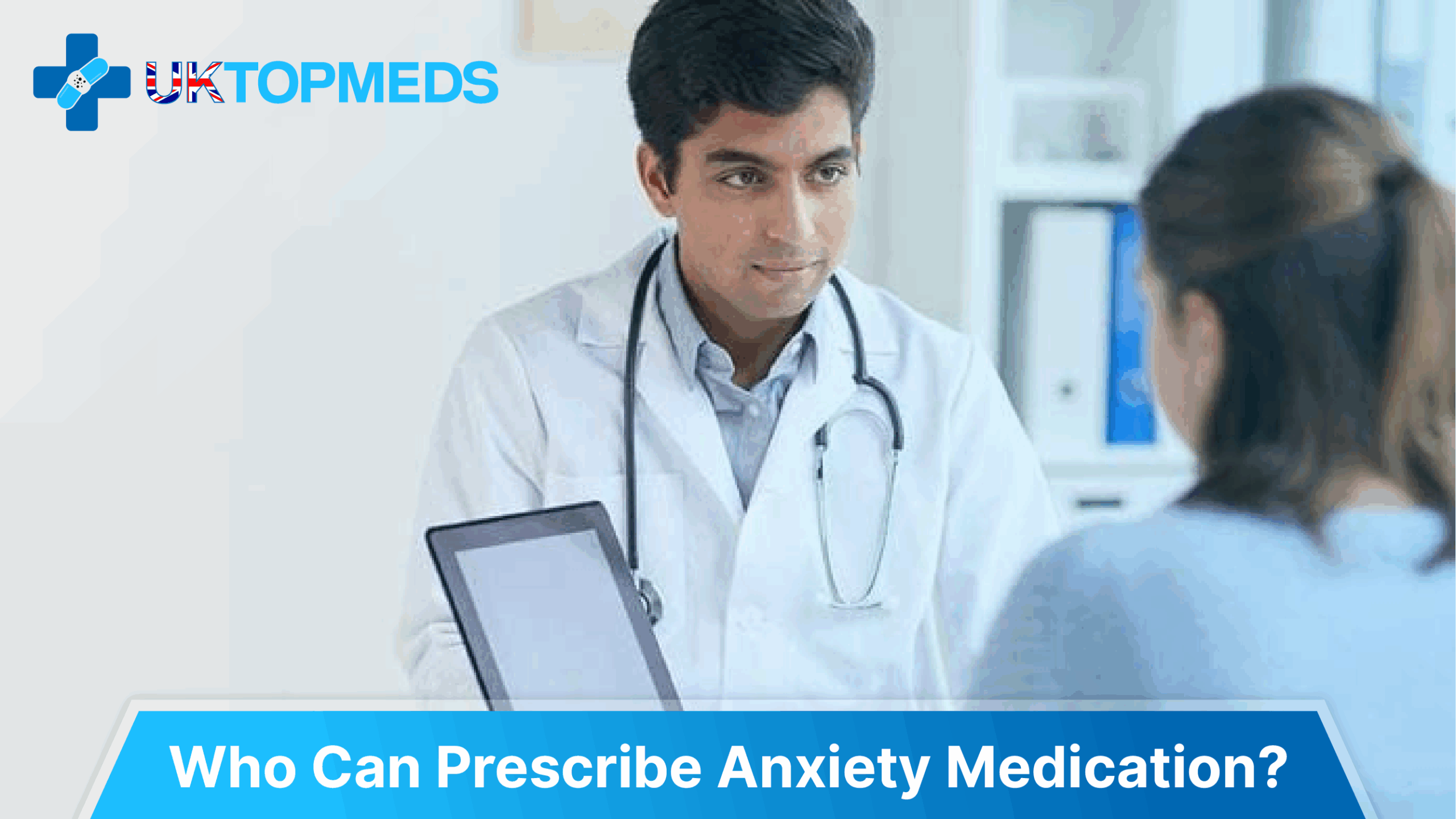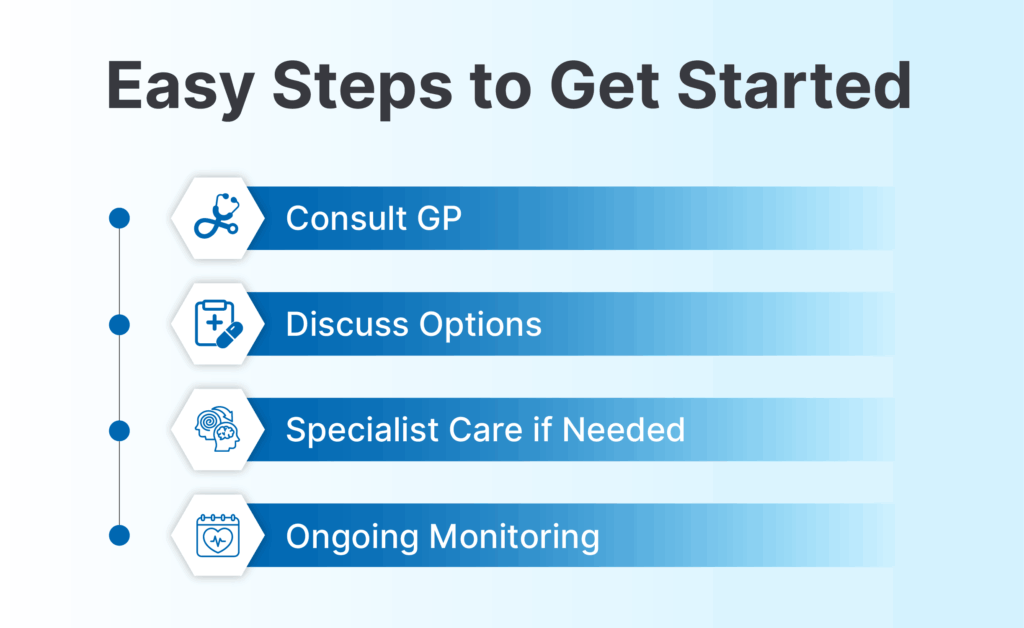No products in the cart.
You dont have any products in your cart yet, add a few products to experience this experience.
Who Can Prescribe Anxiety Medication?

Bone pain is localised, deep and sharp, while muscle pain is a widespread soreness along the length of the muscle. Bone pain is easier to spot and feels more intense. Muscle pain is a general, dull ache caused by minor injury, strain, or overuse. Bone ache is present whether you move or not, while muscle pain worsens with movement or when you use the affected muscle. Pain in any part of the body profoundly impacts your life functions. Talk to your healthcare provider in case of severity of pain and prevent further damage.
If you are looking to overcome anxiety and assume medicine can help, we’ve got your back. Thousands of people suffer from anxiety every year, and prescribed medicine is considered an effective treatment. But before getting any medicine, it is essential to know who can prescribe anxiety medication. This blog will help you find the right professional who can assist you in your mental health journey.
Simple Guide on Who Prescribes Anxiety Medication
Anxiety is one of the major concerns in the UK, and for many people, medication is the only remedy. But finding the right person for the treatment of anxiety may feel daunting. Not every doctor or healthcare provider is authorised to prescribe anxiety medicine.
Here’s a simple guide to help you choose the right prescribing authority. Understanding your choices ensures to get appropriate treatment and support:
General Practitioners (GPs)
Your family doctor or general practitioner (GP) can analyse your anxiety, recommend a variety of meds, and monitor your treatment. For moderate to severe anxiety, they can prescribe anti-anxiety pills, such as selective serotonin reuptake inhibitors (SSRIs). They can also evaluate your body’s reaction to these medicines and tailor the treatment as required.
Psychiatrists
Not everyone with an anxiety disorder needs a prescription, but for some people, it is essential to recover from anxiety. Psychiatrists, who are medical doctors specialised in mental health, can diagnose anxiety and prescribe medicines to treat anxiety-related conditions. They are also certified to address chronic or complex anxiety and can offer psychotherapy.
Nurse Practitioners and Mental Health Nurses
Nurse practitioners (NPs) in both psychiatry and primary care can issue a prescription, including controlled substances, based on state laws. They are more often used to help fill the shortage of mental health providers. Mental health nurses also have the competency to recommend anxiety pills to help relieve your stress. You can get support from them for tailored treatment to overcome your anxiety.
Physician Assistants
Physician associates (PAs) are healthcare providers having a general medical background. They work with GPs, doctors, physicians, and surgeons delivering medical care as a crucial part of the multidisciplinary team. PAs depend on a dedicated medical supervisor for working, but they can work independently with a little support. They can also help you reduce your anxiety symptoms.
Who Cannot Prescribe Anxiety Medication?
Not everyone in healthcare is authorised to prescribe anti-anxiety tablets. Therapists, counsellors, and psychologists can only support you with talk therapy and coping strategies, but they are not licensed to write prescriptions. Friends, family, or unverified online sellers also cannot legally provide anxiety meds.
Only qualified and trained medical professionals, such as doctors, psychiatrists, or certain nurse prescribers, have the authority to prescribe. It is important because taking sedatives without proper medical guidance can be unsafe and may do more harm than good.

Easy Steps to Get Started
Consult Your GP
Your general practitioner is often the first point of contact for mental health concerns and can help you determine the most appropriate treatment, including meds.
Discuss Your Options
A healthcare professional should discuss the different types of tranquilisers available, the length of treatment, possible side effects, and any interactions with other medicines you are taking.
Seek Specialist Care
If your anxiety is severe or complex, your GP can refer you to a psychiatrist or other mental health specialist for more specialised care.
On-Going Monitoring
Your treatment doesn’t end once you start the medication. Regular check-ins with your GP or specialist ensure the medicine is working and that side effects are kept in check. Dosages may need adjusting over time, and honest feedback helps your doctor guide you safely.
Frequently Asked Questions
Can I get anxiety medication from a regular doctor?
Yes. Most certified medical doctors, including primary care physicians, internists, and psychiatrists, can prescribe anti-anxiety pills.
Should I treat anxiety with antidepressants?
While most people with generalised anxiety disorders need a treatment plan or psychotherapy to control anxiety, lifestyle changes can also make a difference, e.g., stay physically active and develop a routine so that you may remain physically active most days of the week.
What products should I not use while taking anxiety meds?
Alcohol may increase the risk of side effects of antidepressants. Other medicines, including those for anxiety, sleep, and pain, can also cause problems when taken with alcohol.
Is anxiety a mental health condition?
Yes, anxiety is considered a common mental health disorder when the feelings of fear and worry are intense and interfere with daily life, rather than occasional, normal anxiety.
Who can get anxiety medication?
A person may need anxiety pills if they frequently face symptoms of anxiety, such as restlessness, feeling on edge, racing thoughts, and difficulty concentrating.
Is anxiety a chemical imbalance?
Yes. Several neurotransmitters and hormones contribute to anxiety, such as serotonin, norepinephrine, dopamine, and gamma-aminobutyric acid (GABA). Imbalances in these chemicals can cause an anxiety disorder.
When is the best time to take your anxiety medicine?
Since short-acting benzodiazepines can bring on drowsiness quickly, night is the best time to take anxiety med. Overall, most anxiety tablets can be taken in the day or during the night, depending on how the medicine affects you and your symptoms.
Conclusion
Getting anxiety medication can be confusing. But with the right knowledge of the right person, the process can be quite easy. Your home remedies may not fix anxiety, and you need to consult your mental health professional or psychiatrist to treat chronic or complex anxiety. Also, a single prescription or therapy session may not suffice to reduce anxiety.
So, you’ll need to work with your doctor over time to track your anxiety symptoms and manage your treatments. That might sound like much work. But a little work on who prescribes anxiety med will benefit you in the long run. Eventually, you’ll build a relationship with a doctor who knows you, your history, and your preferences.

Alex Rivera
Alex Rivera is a Doctor of Pharmacy and a clinical researcher with over 15 years of experience in drug development and pharmacology. His work focuses on the efficacy and safety of new medications, and his articles provide in-depth analysis on drug interactions, side effects, and pharmaceutical innovations. Michael is committed to promoting medication safety and patient-centric care.



